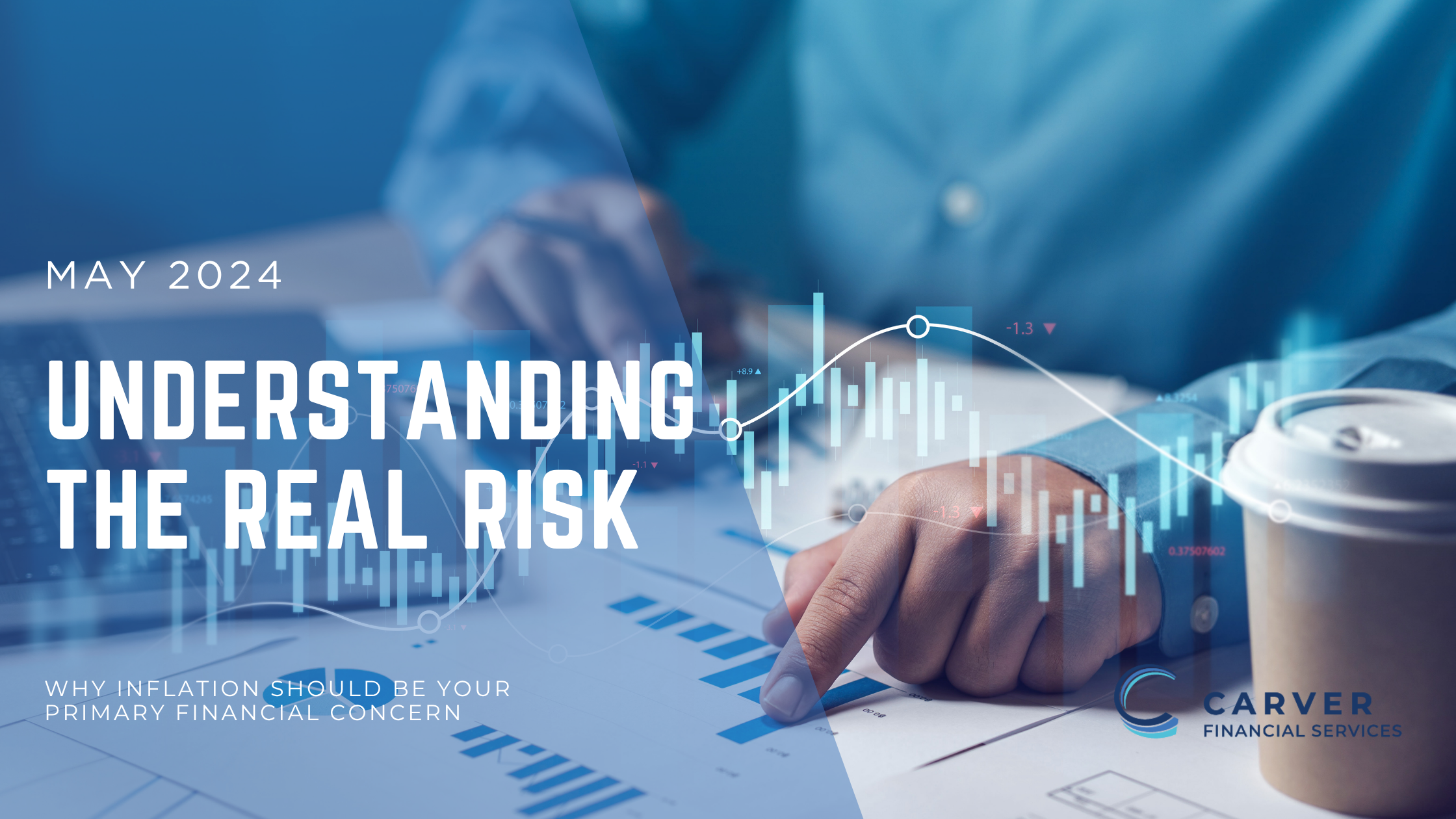
Investing Isn’t Just About Money — It’s About Meaning
Most people think of investing as a way to make money. But the real purpose runs deeper.
At Carver Financial Services, we believe investing is not an end in itself — it’s a means to an end: living the life you envision.
True financial planning is about more than returns or performance charts. It’s about freedom — the ability to make choices that align with your values, goals, and dreams.
That might mean retiring early, helping your children through college, buying a second home, starting a business, or simply living with less worry about the future.
Investing, when done thoughtfully, becomes a tool for achieving independence and peace of mind — not just wealth.
From Financial Planning to Personal Vision Planning®
Our approach, called Personal Vision Planning®, integrates every part of your financial life — investments, tax strategies, estate planning, and asset protection — to create a plan that’s uniquely yours.
We start by understanding your personal vision — what matters most to you — and then build a plan to help you reach it. But creating the plan is just the beginning.
We continually review and update it based on your life changes, new legislation, and market conditions.
That means our team isn’t just managing your money — we’re helping you manage your future.
Why Returns Don’t Tell the Whole Story
When you see an investment’s return, it’s easy to assume that’s the full picture. But returns alone can be misleading.
Two investors might have the same average return — yet one ends up with significantly less money.
Here’s why: sequence of returns and volatility matter.
Imagine investing $100,000.
- In year one, it drops 50%.
- In year two, it rises 60%.
Your average return is +5%, but your ending balance is only $80,000 — not $110,000.
The difference is timing and volatility.
That’s why our focus is on minimizing risk, managing cash flow, and maximizing what you keep — after taxes, fees, and emotions.
Because success isn’t just about growing wealth; it’s about preserving and using it wisely to live the life you envision.
The Deeper Purpose Behind Investing
The question isn’t just how to invest — it’s why you’re investing.
Here are three reasons people invest beyond making money:
1. To Achieve Financial Independence
Investing builds freedom — the ability to make life choices without being limited by money.
Whether that’s retiring early, traveling more, or funding a passion project, independence gives you control over your time and future.
2. To Create Security and Stability
A solid investment strategy safeguards your family’s future — funding education, protecting against inflation, and ensuring a comfortable retirement.
It’s about reducing worry and increasing confidence.
3. To Leave a Legacy
Many investors want their wealth to have impact — supporting future generations, charitable causes, or community initiatives that reflect their values.
Investing with purpose turns wealth into legacy.
Why Long-Term Thinking Wins
Markets rise and fall, headlines change, and emotions fluctuate. But history shows that discipline and time are far more powerful than prediction.
1. Compounding Returns Build Momentum
Compounding — earning returns on past returns — rewards patience. The longer you stay invested, the stronger it becomes.
2. Volatility Is Temporary, Growth Is Enduring
Markets are unpredictable in the short term. But over time, staying invested helps you capture the recovery and long-term growth that impulsive decisions often miss.
3. Personal Goals Take Time
The goals that matter most — funding retirement, raising a family, or building a legacy — aren’t short-term. They require steady, consistent effort across years or decades.
Avoid the Trap of Day-to-Day Watching
In an age of nonstop financial news and real-time data, it’s easy to get caught up in daily market movements. But that constant watching often leads to emotional reactions and stress.
Here’s why stepping back matters:
- It prevents emotional decision-making.
Fear and greed are powerful — and reacting to short-term changes can derail long-term plans. - It keeps your focus on what truly matters.
Your goals, not the market, should guide your choices. - It reduces stress and improves perspective.
Financial peace comes from knowing you’re following a plan — not from chasing headlines.
Investing for a Life of Purpose, Not Panic
Investing is about more than numbers — it’s about your why.
When your investments are aligned with your personal vision, every financial decision supports the life you want to live — today and tomorrow.
At Carver Financial Services, we help you look past the noise, manage what you can control, and focus on what truly matters:
- Minimizing taxes and expenses
- Managing risk and volatility
- Aligning wealth with purpose
As election cycles and news cycles intensify, remember — uncertainty is temporary, but your goals are lasting.
Our team is always here to help you stay grounded, focused, and confident in your journey toward financial independence and personal fulfillment.
Investing well means living well — with purpose, clarity, and peace of mind.
Any opinions are those of Randy Carver and not necessarily those of Raymond James. This material is being provided for information purposes only and is not a complete description, nor is it a recommendation. The information has been obtained from sources considered to be reliable, but we do not guarantee that the foregoing material is accurate or complete.




















